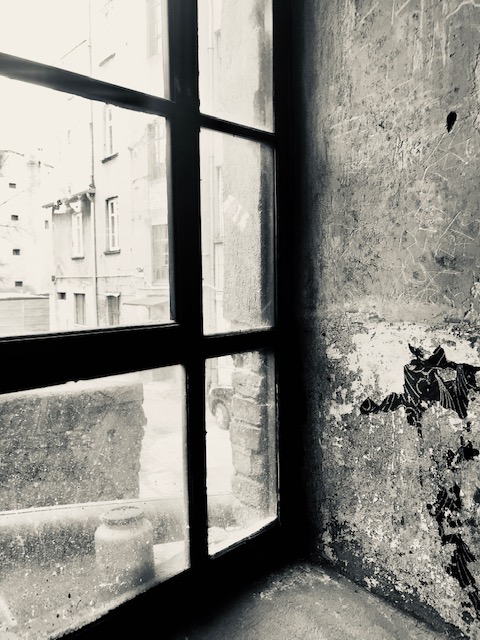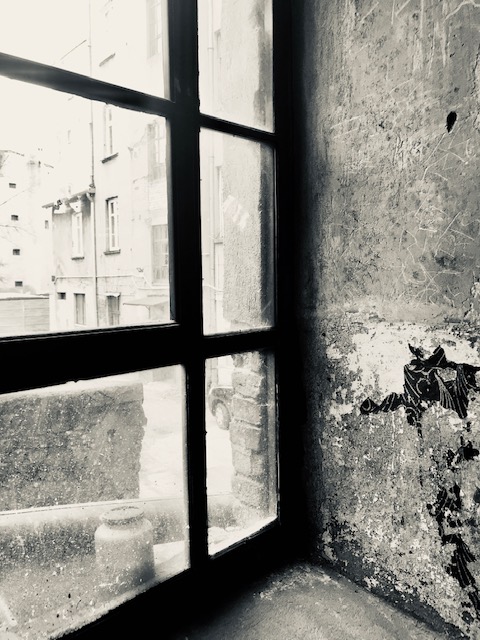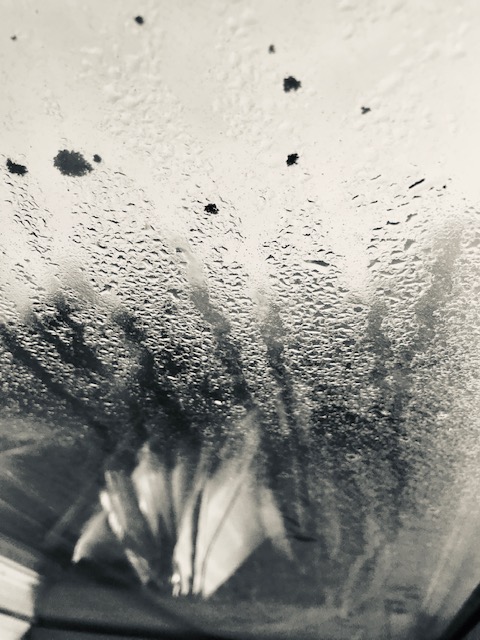
“A house that has been experienced is not an inert box. Inhabited space transcends geometrical space.”
My house is sometimes a chair I sit on in a different country, a tent, a beach, the woods I return to in photographs. My grandmother’s hand as it stirred her black tea. My children’s skin on my lips as they leave to walk to school. My house is the language I speak from a distance.
“That the houses that were lost forever continue to live on in us; that they insist in us in order to live again.”
Write your space. Observe spaces inside out. From inside your house. From outside looking through a window. From not being here or having. Witness the house that never existed [until now]. Draw your corners, hide in them, reveal yourself in their nooks and corners. Rub them out. Close your eyes. Enter the topography of your intimate being. Find your image.
“The poetic image places us at the origins of the speaking being.”
I open mine. I am in a house. Behind a desk, upstairs in the attic. Surrounded by books, papers, half opened texts, boxes and plastic storage, Christmas paraphernalia, old clothes. Intoxicated by so much material. This space is the study, a writing room, the guest room, a haunted room bound by presence. Up here, at the top of the house, I experience an intimacy that is hard to define. An affinity with language, not yet spoken, things lost and waiting in history, of writing, of space that allows me to inhabit its very complicated architecture.
“We are never real historians, but always near poets, and our emotion is perhaps nothing but an expression of a poetry that was lost.”
I am lucky to have an attic. Even luckier to have a house. A house that I call home at long last. But it hasn’t always been like this. Many don’t occupy either. Never come close. Surrender this word to wars, drown it in separations. Coil, twist, buckle into their bodies to find their corners, their solitude or end.

“To curl up, belongs to the phenomenology of the verb to inhabit.” xxxviii
For Bachelard, the attic is a psychological metaphor for clarity. But up here, I am far from that which is tangible, and my perceptions of this attic space is distorted by all that it holds, and promises and fails to deliver. I occupy it with caution, relish its atmosphere.
“There is ground for taking the house as a tool for analysis of the human soul.”
Gaston Bachelard’s The Poetics of Space (La Poétique de l’Espace, 1958) invites us to examine space in new light. What is the meaning of spaces in houses, in the house itself and its corners? The house is his phenomenological object, in which our personal experiences our heightened.
“All really inhabited space bears the essence of the notion of home.”
But we know different. We can argue against his assertion. Not all houses are safe, secure or welcoming. I invite you on this course to explore such ideas through our writing of house, and away from house, through our experiences of dwelling, in the way we inhabit places. In as much as entering houses, we will leave them behind and find new locations of space that open the dialectics of inside and outside.

“The images I want to examine are the quite simply images of felicitous space.”
Writing poetry that is on the threshold, on the boundaries of what exists inside and what has disappeared. “When the image is new, the world is new,” says Bachelard. We will seek new images living in spaces before us, developing new worlds and meanings of belonging. We will follow and diverge from Bachelard’s thinking –
“Poetry, rather than being a phenomenology of the mind, is a phenomenology of the soul.”
I hear the tapping of keyboards, the transmission of airplanes across a rain soaked sky, glassy now in slicked blue. The space of the attic moors my body. The doorbell from the post-man breaks free this tarpaulin. Bills, leaflets, fashion brochures, government pledges. No sign of a letter or postcard to gesture your presence, your voice inside the handwriting that never arrives.
Seek poetry in the intimate spaces in our lives, with Agnieszka Studzinska on their upcoming online course, Poetics of Space after Bachelard. Call 0207 582 1679 or book online.
Add your Reply
You must be logged in to post a comment.